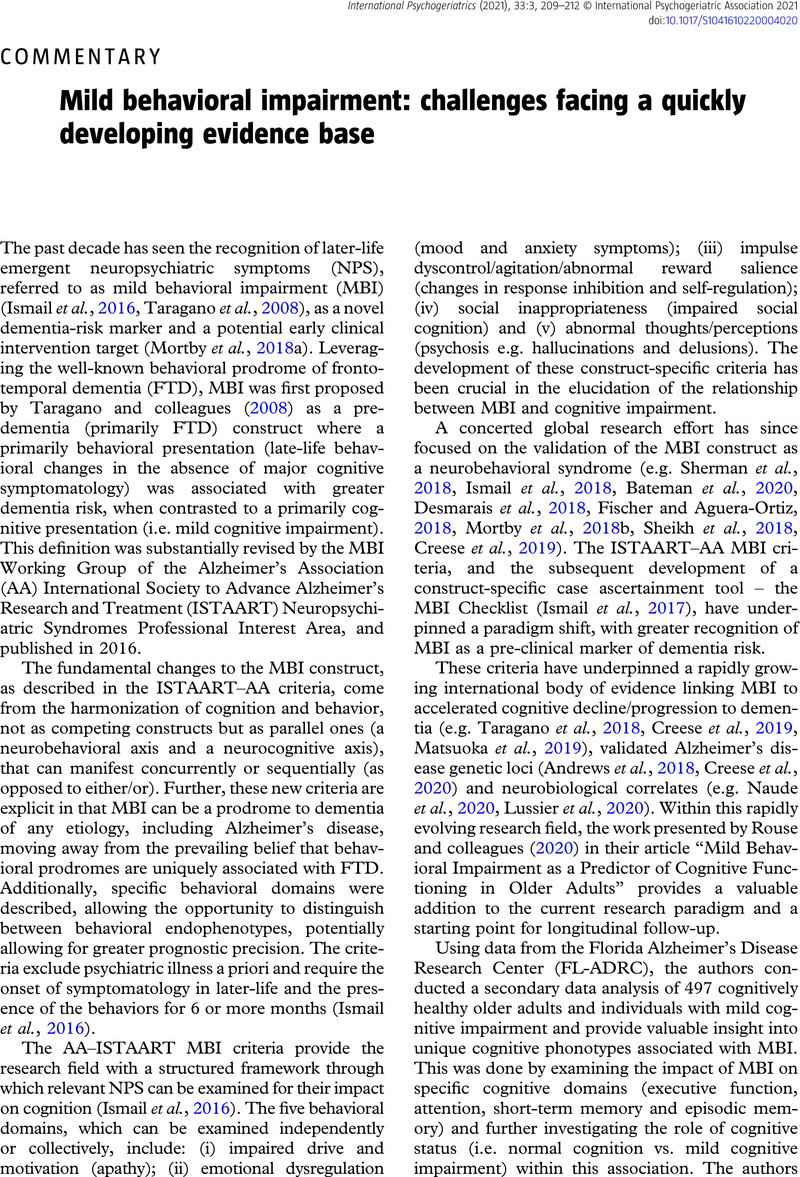Crossref Citations
This article has been cited by the following publications. This list is generated based on data provided by Crossref.
Ismail, Zahinoor
Ghahremani, Maryam
Amlish Munir, M.
Fischer, Corinne E.
Smith, Eric E.
and
Creese, Byron
2023.
A longitudinal study of late-life psychosis and incident dementia and the potential effects of race and cognition.
Nature Mental Health,
Vol. 1,
Issue. 4,
p.
273.
Jin, Piaopiao
Xu, Jiaxi
Liao, Zhengluan
Zhang, Yuhan
Wang, Ye
Sun, Wangdi
and
Yu, Enyan
2023.
A review of current evidence for mild behavioral impairment as an early potential novel marker of Alzheimer’s disease.
Frontiers in Psychiatry,
Vol. 14,
Issue. ,



